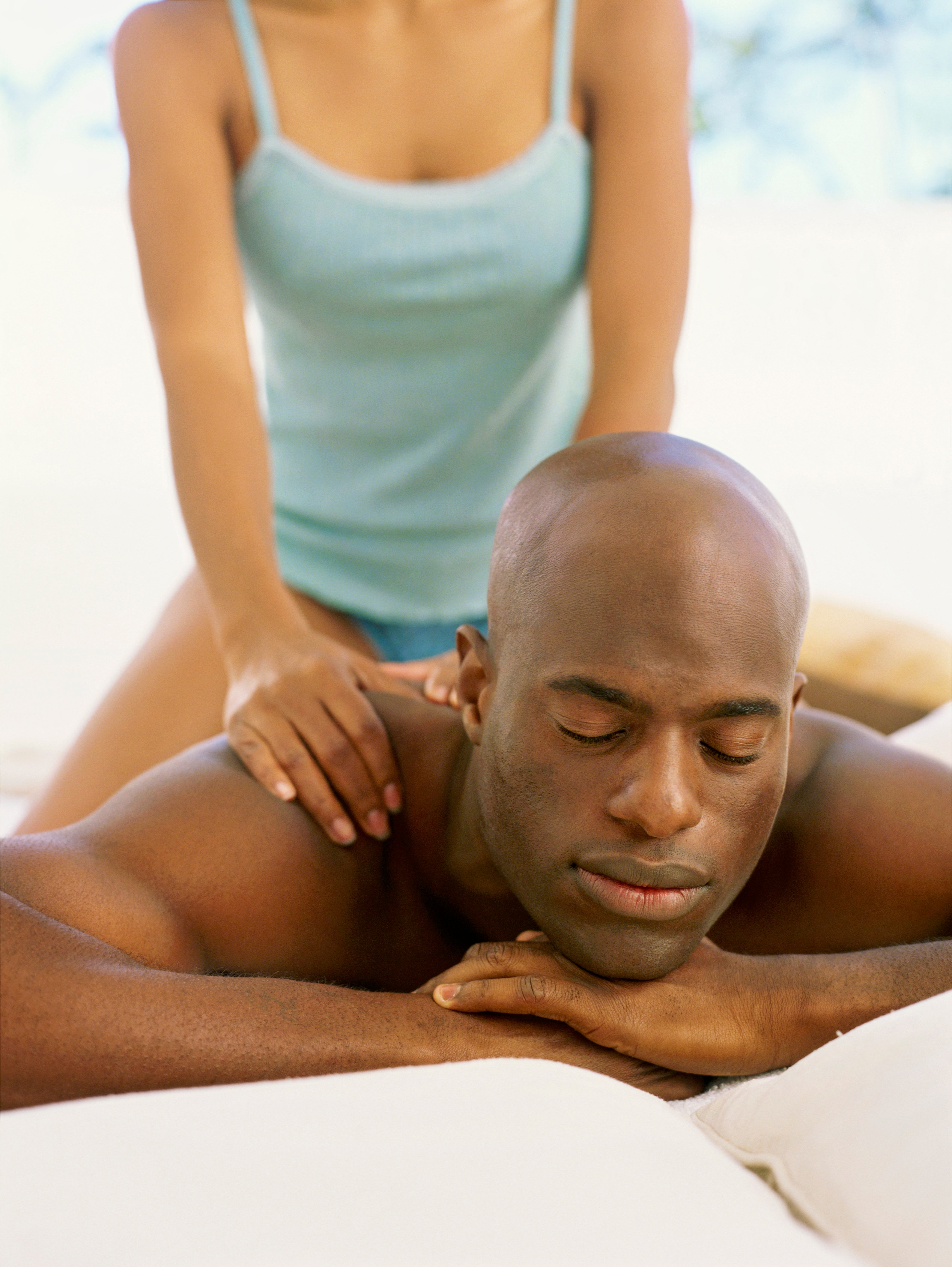
The benefits of professional massages are well documented: they provide stress relief, relax stiff muscles, and deliver soothing self-care. But a new study shows that couples who skip the pro and instead massage each other can score those same rewards—and may strengthen their relationship.
The new study, which has not yet been published in a peer-reviewed journal, was presented this week at the British Psychological Society’s annual conference in Brighton, England. It involved 38 participants (19 couples) who all completed a three-week massage course.
Before and after each massage session, each partner answered questions about his or her physical and mental health and had measures taken of their energy, irritability, mental clarity, mood, pain, emotional stress, and physical uptightness.
The researchers found that both partners’ well being, perceived stress, and coping abilities improved after each rubdown. Those feel-good results remained even three weeks following the end of the massage training. (Overall, 74 percent of participants continued to do partner massage after the course had finished.)
Of course, when you’re on the receiving end of a massage, it makes sense that you’ll reap these benefits. What’s really interesting, the study authors say, is that physical and emotional well being for both partners—the giver and the receiver—surged after each massage session.
Previous research has shown that couples tend to operate as a pair when coping with stress, says lead author Sayuri Naruse, a graduate student in health psychology at Northumbria University. The new findings suggest that massaging each other may help ensure relationship stability, she says, and can be a simple and effective of improving well being while also showing affection.
Not relying on a massage therapist is also cheaper, and it gives willing couples the chance to experiment, says Naruse. Still, it can’t hurt to invest in a short how-to course or download a massage app that can guide you. If one or both partners aren’t confident or comfortable, that may negate the potential benefits, Naruse says.
“It is a bit like cooking,” she told Health via email. “Anybody can cook, but not everyone can cook a nice meal without a bit of patience or experience.”
Naruse also notes that some of the participants found it difficult to fit massage into their busy schedules. But she believes it can be worth the time and effort. “It is important to talk and decide the convenient time for both partners to exchange massage,” she says. “We should not underestimate the power of touch.”
